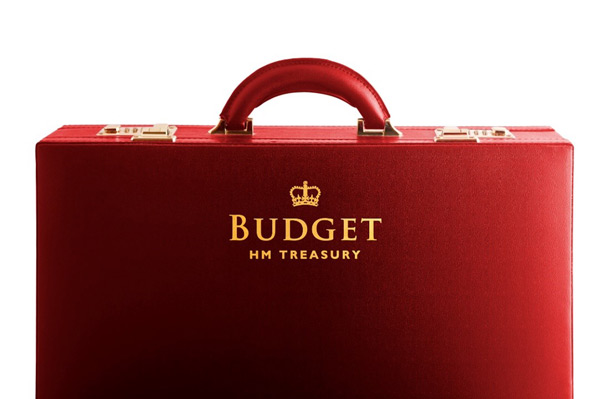Business News England - 01.11.2021
More tax rises on Wednesday?
Over the last year we have learnt that corporation tax will increase in 2023 and that there will be a 1.25% rise in National Insurance Contributions (NICs) from April 2022 paid by employers, employees, self-employed and for those with share dividend income.
Personal allowances have been frozen at £12,570, basic rate at £37,700 and the higher rate at £50,270 until 2026.
Chancellor Rishi Sunak has stated the need to "fix" the nation's finances as the economy emerges from the COVID-19 pandemic, declaring: "Our recovery comes with a cost."
On Wednesday we can expect further tax rises to be announced in the Budget to fund the support given for the vaccine rollout, the Furlough and self-employed support schemes.

So what are the tax planning options available for companies and individuals?
For companies it is all about the most tax efficient way of extracting profits such as dividends verses salary, contributions to pensions and receiving tax efficient benefits. Also important is utilising capital allowances and thinking carefully about the timing of expenditure.
For the self-employed, protective claims for tax credits should be considered if profits fluctuate.
If you are married, options are available to fully utilise personal allowances and ownership of income producing assets such as investments and rental properties.
One crafty way for the Chancellor to bring in extra tax revenue without raising headline tax rates would be to limit some of the generous tax breaks that are currently available. He may therefore consider some of the measures suggested by the Treasury Select Committee, or the Office of Tax Simplification (OTS) last year. The Treasury Select Committee specifically drew attention to the cost of pension tax relief (£41 billion in 2019) and CGT private residence relief (£25 billion) so we can perhaps expect further restrictions to those reliefs. The OTS have carried out a detailed review of both CGT and IHT, so we anticipate changes to those taxes to bring in extra revenue. Something to listen out for is a possible change to the CGT rules when assets are transferred on death. Currently assets such as the family home or the family business are transferred at market value at the date of death without CGT being payable. It has been suggested that instead of market value the assets are transferred at the deceased's base cost, which might be just £100 in the case of shares in the family company. Although there would be no CGT payable at the time the effect would be to create a large potential CGT bill for the next generation.
When it comes to pensions there are rumours yet again that higher rate relief for contributions into personal pensions may be removed and replaced with flat rate tax relief of say 25%. That would encourage basic rate taxpayers to save more in their pension at the expense of those paying tax at 40% or 45%. Higher rate taxpayers with spare cash should perhaps consider putting more into their pensions before Budget Day.
Personal pension contributions remain tax efficient for all. Company contributions to an employee's pension will attract corporation tax relief and will be free of income tax and national insurance for the employee (up to certain limits). Individuals can claim relief from income tax and national insurance for contributions to personal pension schemes (subject to certain limits).
These are just a few of the options for planning ahead and now is the time to sit down and arrange your affairs to ensure you are as tax efficient as you can be. We would be delighted to work out a plan with you so please contact us.
Working Tax Credit customers must report changes to working hours
HMRC is urging Working Tax Credit customers to check if they need to update their working hours if these have reduced as a result of coronavirus.
During the pandemic, Working Tax Credit customers have not needed to tell HMRC about temporary short-term reductions in their working hours as a result of coronavirus - for example if they were working fewer hours or were furloughed.
If a Working Tax Credit customer's hours temporarily fell because of coronavirus, they have been treated as if they were working their normal hours.
Customers do not need to tell HMRC if they re-establish their normal working hours before 25 November 2021, but from then, they must do within the usual one-month window if they are not back to working their normal hours shown in their Working Tax Credit claim.
See: Working Tax Credit customers must report changes to working hours - GOV.UK (www.gov.uk)
Working in Europe?
As travel returns to a more normal environment, the UK government has started a campaign to remind business travellers of the rules for travel to an EU country, Switzerland, Norway, Iceland or Liechtenstein.

As well as the actions all travellers need to take, there are extra actions if you are travelling for business. Business travel includes activities such as:
- travelling for meetings and conferences
- providing services (even with a charity)
- touring for art or music
- taking goods to sell
If you are travelling to an EU country, Switzerland, Norway, Iceland or Liechtenstein for less than 90 days in a 180-day period, you may be able to do some things without getting a visa or work permit, for example going to a business meeting. You may need a visa, work permit or other documentation if you are planning to stay for longer than 90 days in a 180-day period, or if you will be doing any of the following:
- transferring from the UK branch of a company to a branch in a different country ('intra-corporate transfer'), even for a short period of time
- carrying out contracts to provide a service to a client in another country in which your employer has no presence
- providing services in another country as a self-employed person
Check the entry requirements and rules of the country you are visiting to find out if you need a visa or work permit.
The government also gives advice on professional qualifications, earning money in the EU, insurance and taking goods and cash into the EU.
See: Visiting the EU, Switzerland, Norway, Iceland or Liechtenstein: Business travel: extra requirements - GOV.UK (www.gov.uk)
Circular economy for SMEs – innovating with the NICER programme
Innovate UK, part of UK Research and Innovation, is investing up to £1 million in circular economy innovation projects.
This funding forms part of the UKRI National Interdisciplinary Circular Economy Research programme (NICER), enabling SMEs to engage with and benefit from access to expertise at five research centres via collaborative research and development (CR&D) activities.
The aim of this competition is to support feasibility studies, industrial research and experimental development that address the challenges of transitioning to a circular economy. This competition closes at 11am on 8 December 2021.
Your proposal must demonstrate how you will create a step-change in the adoption of circular economy approaches.
The project must:
- have total eligible costs between £50,000 and £100,000
- start no earlier than 1 April 2022
- end by 31 March 2023
- last between 9 and 12 months
- carry out all of its project work in the UK
- intend to exploit the results from or in the UK
See: Competition overview - Circular economy for SMEs – innovating with the NICER programme - Innovation Funding Service (apply-for-innovation-funding.service.gov.uk)
Coming to England for seasonal agricultural or poultry work
The advice for seasonal agricultural and poultry workers coming to England to work on farms and processing sites, and their employers, has been updated with changes to rules for travel to England from countries not on the red list.
See: Coming to England for seasonal agricultural or poultry work - GOV.UK (www.gov.uk)
Summary of updates to international travel, October 2021
Changes made to international travel rules during October 2021 are summerised on the webpage below.
See: Summary of updates to international travel, October 2021 - GOV.UK (www.gov.uk)